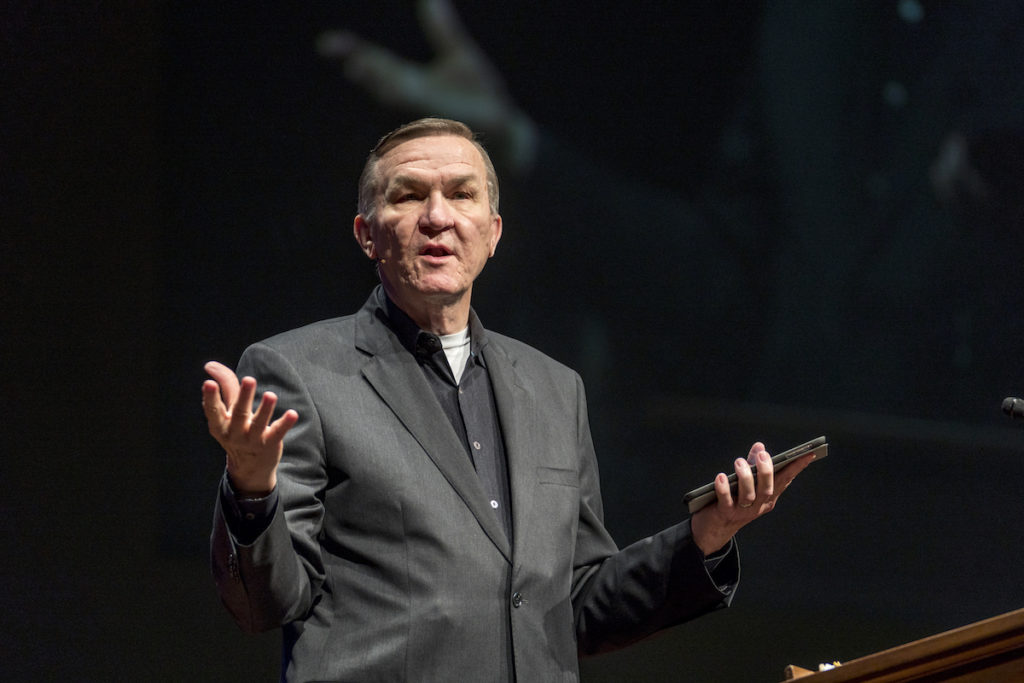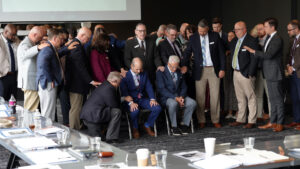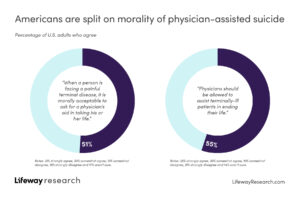
What if a billionaire believer approached me and said, “Ross, something has to be done about unbelieving young people who are heading toward a life of spiritual ruin and eternity without Christ. I’m going to pay to fly every SBC senior pastor and student pastor to Cowboy Stadium. That should just about fill up the place. Then I’m going to give you a microphone and let you say whatever you want to say to those folk.”
If I were given such a once-in-a-lifetime opportunity, I would give prayerful thought to every sentence—indeed, every word—I was going to say. After 50 years of pouring over Scripture, serving as a student pastor, teaching student pastors, observing student ministries, and digesting research, I know what I would say. My brief presentation to a packed stadium would go like this:
Pastors, welcome to this historic gathering. I know you did not come here just to get more discouraged about the future of the church. Instead, I’m praying we will leave here encouraged and optimistic about what the future may bring. But very briefly, we must take a look at our current situation.
In the May 24, 2019, issue, Christianity Today reported that the biggest factor in the Southern Baptist Convention’s decline is not gaining new converts—“it’s keeping their own. … Nearly half of Southern Baptist kids leave and never come back.” The latest Annual Church Profile found the SBC had the largest drop in more than a century, according to Baptist Press.
I strongly believe in Ronnie Floyd’s Vision 2025 for the SBC. I especially embrace Strategic Action Four offered by Floyd, president and CEO of the SBC Executive Committee. Between now and 2025, I fully believe we can “turn around the ongoing decline in the SBC in reaching, baptizing, and discipling 12- to 17-year-olds.”
In the power of the Spirit, we can see the declining graph of student baptisms begin to move upward. We can see far more students graduate from high school with a deep love for Jesus, the local church, and the Great Commission.
All of that can happen. But it won’t happen unless we make some significant changes in how we do ministry. Teenagers can accelerate the decline of the SBC. Or, in the power of the Spirit, they can spark renewal in our churches and Kingdom impact in the culture. Here are the five factors most likely to make the difference.
- We must introduce many more students to Jesus.
Since student baptisms decline every year, things must change. We need strategies to take the Gospel outside the church. We need students, leaders, and parents trained to have Gospel conversations. We need student ministry events planned specifically to present the Gospel.
However, church programs make a lasting difference only if the senior pastor and the student pastor model evangelistic lifestyles. Maybe both of you do. If not, for accountability, perhaps the two of you need to go out together to share the Gospel weekly. Then, when it becomes second nature, each of you can take out others—until it permeates the DNA of your church and student ministry.
- We must involve every student in missions.
Rich missions experiences while young lead to adults who pray, give, and go for a lifetime. The absence of such experiences usually leads to adults who don’t.
Every student needs multiple missions experiences locally each year. Every student needs a major missions experience in a challenging location in the U.S. each year. At least once during high school, every student needs an international missions experience.
Every missions experience should be strategic. Whether local or global, the ultimate goal should be to lead people to Jesus and then baptize them into churches. Compassionate service is Christlike, but such ministry should always lift eyes to Jesus and multiply the number of worshipers around the throne for eternity.
- We must bring students into the full church family.
Students are the church today, as well as the future. Pastors should lead students to function as full church members and to fill church leadership roles. Students should be part of men’s ministry and women’s ministry. Students should be on adult ministry teams and participate in community outreach.
When teenagers spend almost all their time in a student ministry silo, we create students who love the youth group but not the church. Once they outgrow the youth group, where will they focus their loyalty and energy?
I strongly believe in weekly ministries and special events just for teenagers and their leaders. I also believe in those times when students function with the full congregation. We choose between those two approaches by asking: With this specific ministry event, are we most likely to achieve our mission through an age-specific or an intergenerational approach?
- We must spiritually awaken parents so they can lead their children.
Church parents are going to support teen sports on Sunday mornings until their hearts change. And they’re going to outsource to the church the spiritual leadership for their children until their hearts change.
Church teenagers are full of moral therapeutic deism because church parents are full of moral therapeutic deism (i.e., me-centered faith). Pastors may try to prod parents to change, but that will not happen until their hearts change.
Corporate worship and open-group Bible study are central to the mission of the church. We need to give our best to both of those hours. But what’s missing is intensive, small-group discipleship modeled after Jesus’ investment in Peter, James, and John. We need disciplers who adore King Jesus to massage Scripture into the hearts of three or four others. As that tiny group also begins to grasp the enthroned glory of His Majesty, they will welcome His reign over their lives.
Parents awakened to the greatness of Jesus will talk about Him at home, with their eyes sparkling. They will honor the King on Sundays. They will prioritize the youth mission trip over sports camp. They will want to attend your parenting seminars. And most of their children will walk in faith all their lives.
- We must thoroughly disciple specific teenagers.
We want every student to attend corporate worship, open-group Bible study (often on Sunday mornings), and student worship. After those three hours, students may only give us one additional session.
How do we construct that fourth hour to create thoroughly discipled high school graduates who
- adore Christ and live out of gratitude for the Gospel,
- take responsibility for their own spiritual growth,
- articulate what they believe and why,
- know how to disciple others,
- live to take the good news to the nations and the hard places in the U.S., and
- impact churches, business, entertainment, and government?
Teenagers can spend part of student worship answering questions about the student pastor’s talk. But that’s seldom intensive discipleship. For those students who are motivated and want to be disciples of Jesus, we need to saturate them with core doctrines, apologetics, biblical interpretation, worldview, evangelism, ethics, spiritual disciplines, etc. And, just as with adults, they are most likely to be transformed by such content in tiny, gender-specific groups that feature grace-filled accountability and a life-on-life relationship with the discipler.
The Value of Student Pastors
Student pastors, few realize how valuable you are to the Kingdom today. Only in eternity will we know all King Jesus has done through you in the lives of teenagers. And here is some excellent news. As the church makes the changes we are discussing today, your current value is going to increase dramatically.
Who will mobilize the student group and the entire church to introduce many more teenagers to Jesus? Who will ensure every teenager is involved in missions locally and even globally? Who will build around every teenager a rich web of relationships with the congregation? Who will guide every teenager to find places of service with the adults? Who will be the most passionate to see parents spiritually awakened and then leading at home? Who will create a new discipleship strategy for those teenagers who want to follow Jesus?
Download a sample student ministry job description.
Student pastors, most of the time, the answer will be you. Those of us who teach student ministry stand ready to help you quickly retool for new and wonderful ways to express your calling. Senior pastors, I pray you will help your congregation celebrate and express gratitude for new directions your student pastor is taking.
Turning the big ship of the church will not happen overnight. But always keep focused on where you are going. Bring stakeholders to the table and invite them to dream with you. Early on, plan for small wins that will build motivation for more significant changes.
Final Challenge
In many ways, the future of our churches depends on our reaching, discipling, and mobilizing a young generation. I am not despondent. If pastors and churches make some Spirit-directed and Spirit-empowered changes, we are going to see the graphs move in new directions. In 2025, I believe we will hear Ronnie Floyd say, “By God’s grace and power, we did it! We turned around the ongoing decline in the SBC in reaching, baptizing, and discipling 12- to 17-year-olds.” All for the glory of the King!



















